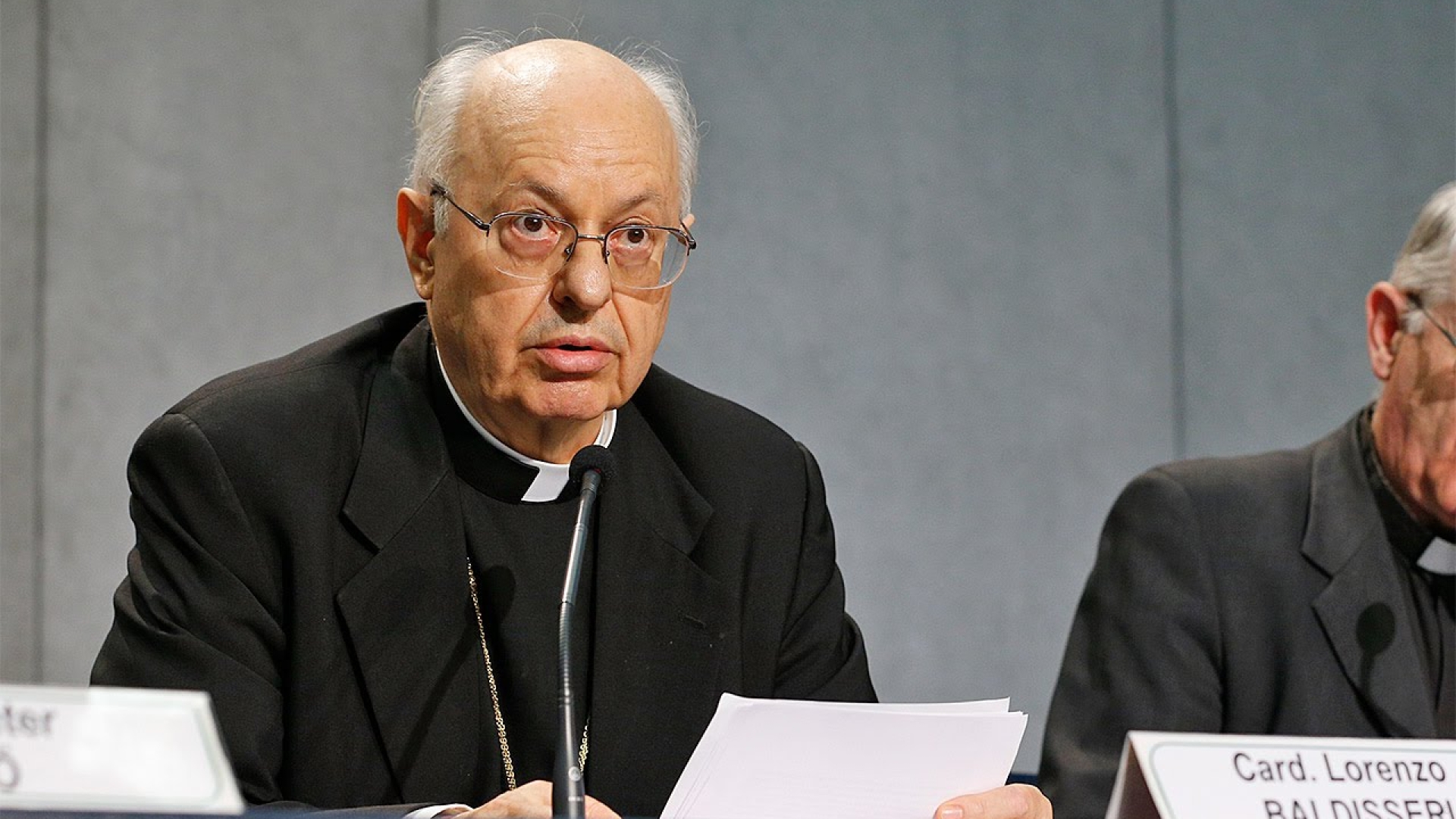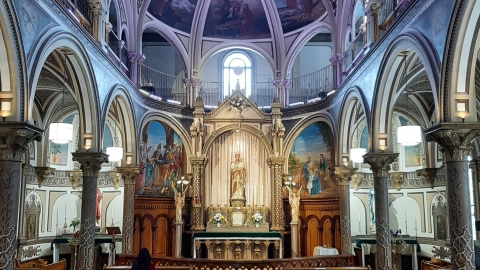Rome Stubbornly Supports the Working Document for the Amazon Synod

Cardinal Lorenzo Baldisseri
After the denunciation of the working document for the forthcoming Synod on the Amazon by Cardinal Walter Brandmüller, three new criticisms have been drawn up in July by Cardinal Müller, Bishop Schneider, and Bishop Nicola Bux. But in Rome several cardinals are supporting Instrumentum laboris come hell or high water, even if it means taking on a revolutionary appearance.
On July 3, 2019, in an interview granted to the Catholic site Settimana News, Cardinal Lorenzo Baldisseri, General Secretary of the Synod, fully accepts the unprecedented, if not revolutionary, character of the next synod: “the synodal assembly of next October is characterized precisely by this ecclesial and ecological ‘double dimension,’ which distinguishes it from previous synods. We are living in a historic moment where we are more aware of the need to take care of Creation,” he insists.
In an article published on July18, by the Jesuit journal La Civiltà Cattolica, Cardinal Pedro Barreto, Archbishop of Huancayo, Peru, points out that the Instrumentum laboris “is a working document...that amply expresses the sentiments and desires of many representatives of the people of Amazonia.”
This prelate, who is one of the founders of the Pan-Amazonian Ecclesial Network (REPAM), responds thusly—without daring to name them directly—to the criticisms from Cardinals Müller and Brandmüller. But his answer is only talk, because Cardinal Barreto does not consider the theological questions raised by the two German prelates. He wants to focus only on the pastoral and economic needs of people living in the Amazon region.
This cardinal is a Jesuit, a long-time friend of Fr. Jorge Bergoglio, before he became Pope; he is even considered the “prophet of integral ecology.” In this way he has worked with about sixty other organizations to solve pollution problems in La Oroya, in the Rio Mantaro Valley, a river in central Peru.
A militant activist, Cardinal Barreto points out in his article that “the majority of states, including a part of the territory that is in the Amazon, are signatories to the principal international human rights conventions and their respective amendments concerning the rights of indigenous peoples and environmental protection.” While most of these conventions are not being honored, the Peruvian prelate assures that “the Church wishes to be a bridge and collaborate so that this objective [i.e., the protection of the Amazon and its people] is achieved for the good of each of the countries represented in this territory, for the dignified and full life of the peoples who inhabit this region, and for the protection of an ecosystem essential for the present and the future of the planet,” he says in detail.
“As a Church, following the Pope’s appeals and desiring communion with and in the societies in which we live, we want to live a “culture of encounter” in the Amazon with the indigenous peoples, the communities that live on the shores of the rivers, the descendants of the Africans, peasants, city dwellers, and religious communities, and pursue a respectful and constructive dialogue with other religions and political and social entities,” says the Jesuit cardinal.
“This synod is an opportunity to consider the identity of these peoples and their capacity to protect these ecosystems, in keeping with their culture and their vision of the world,” according to Cardinal Barreto who adds: “It can allow our non-Amazonian societies to create suitable conditions in order to appreciate, respect, and learn from them. Thus, we may one day go beyond the idea that this territory is an uninhabited or backward space. More than that, we will derive from it useful guidelines for determining the causes of our own failures as societies in the care of our common home.”
These explicit statements by Cardinal Barreto, who will be one of the central personalities of the Synod on the Amazon, show, if needs be, the validity of the theological criticisms of the Instrumentum laboris. According to this Peruvian prelate’s pen, it is already the October Synod which is expressing itself through an eco-ecumenical vocabulary: “for the protection of an essential ecosystem,” in order to “live a culture of encounter,” to “pursue a respectful and constructive dialogue with other religions and political and social entities,” etc.
Nevertheless, there’s a drop of bitterness in this ocean of ecological felicity. Cardinal Pietro Parolin, Secretary of State of the Holy See, admitted—fleetingly—the existence of some disagreement. During a conference titled, “The prophecy of Pope Francis in the era of the globalization of indifference,” he told Buongiorno, the local newspaper in Rimini, Italy, on July 16, that he was very worried about the manifestations of hostility towards the teachings of Pope Francis, adding that this hostility “endangers the unity of the Church whose center of visible unity is precisely the pope.”
Editor's Note: By dint of calling for “unity in diversity,” it is not surprising today to see this unity-in-adversity being dissolved by doctrinal and moral pluralism. Who sows the conciliar wind reaps the post-conciliar whirlwind.
(Sources : SettimanaNews/Civiltà Cattolica/Dici n° 387 - FSSPX.Actualités)



